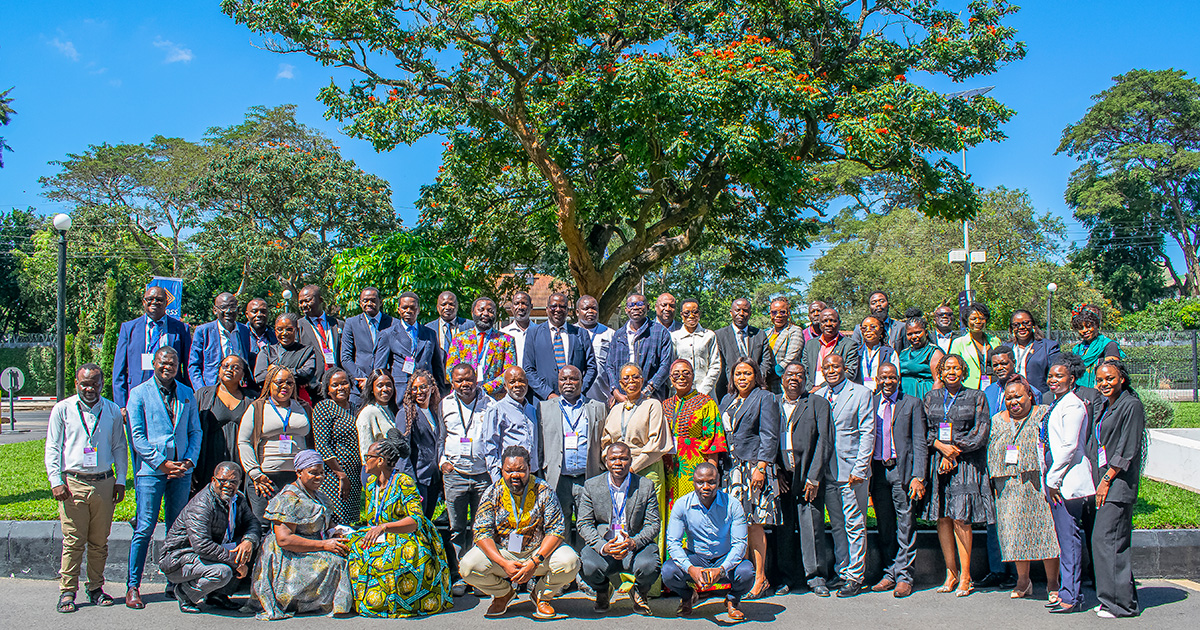On 23 and 24 April 2025, the Centre for Human Rights (CHR), Faculty of Law, University of Pretoria in collaboration with PANOS, convened a stakeholder engagement on elections and information ecosystem with a particular focus on the upcoming elections in Malawi and Zambia. The event was convened in Lusaka, Zambia, in anticipation of the national elections scheduled for 2025 in Malawi and 2026 in Zambia.
The engagement brought together a diverse range of stakeholders, including representatives from Election Management Bodies (EMBs), Election Observation Missions (EOMs), National Human Rights Institutions (NHRIs), domestic observer and monitoring groups, media practitioners, academic experts, political parties, civil society organisations, and democracy advocates.
The primary objective was to promote dialogue around the implementation of the African Union (AU) framework on freedom of expression, access to information and digital rights and other relevant instruments in the context of election. These key instruments include the African Charter on Democracy, Elections and Governance (ACDEG), the African Commission on Human and Peoples’ Rights Guidelines on Access to Information and Elections in Africa (2017); the Declaration of Principles on Freedom of Expression and Access to Information in Africa (2019); and the recently adopted 2024 Guidelines for the use of Digital and Social Media in African elections. This framework is the continental basis for promoting electoral transparency, meaningful participation, and accountability.
The two-day engagement significantly advanced stakeholders’ understanding of the information ecosystem in the context of elections. Discussions highlighted the centrality of freedom of expression, access to information, and digital rights, and emphasised the critical role of stakeholders in promoting information integrity before, during, and after elections. Specific attention was paid to practical strategies for applying the AU framework to support free, fair, and transparent elections in both Malawi and Zambia.
A major take away for all stakeholders was the need and the importance of promoting a conducive information ecosystem during elections. Experts advocated for the effective implementation of the full gamut of the aforementioned framework, including the recently adopted Principles and Guidelines for the Use of Digital and Social Media in Elections in Africa, adopted by the Association of African Electoral Authorities (AAEA).
By the end of the two-day engagement, the stakeholders gained a comprehensive understanding of the information ecosystem through the AU framework, in electoral processes, including the roles of traditional media, social media, and other digital platforms. Of note, the stakeholder engagement also addressed critical issues related to access to information and freedom of expression for vulnerable and marginalised groups, such as women, youth, rural and indigenous communities, and persons with disabilities (PWDs). It also strengthened collaboration between electoral stakeholders in both countries, leading to a mutual commitment to improve coordination and addressing challenges related to the information ecosystem during elections.
The engagement concluded with the formulation of actionable recommendations aimed at enhancing stakeholder roles in shaping a transparent and inclusive information ecosystem during elections. These recommendations seek to reinforce electoral integrity and strengthen democratic governance in Malawi, Zambia, and the broader African region.
This initiative was supported by the Open Society Foundations.


